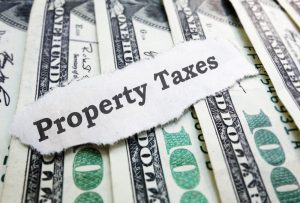Public school enrollment fees in Kansas are allowed by state law but are in reality a double tax on parents. Families already pay for their children’s education as taxpayers, yet fees to attend school can easily be more than a hundred dollars for a single student.
Kansas law (KSA 72-3353) allows schools to charge fees to parents for their children to attend school. But if the State Supreme Court says legislators are providing adequate funding, parents must wonder why they are required to pay fees in addition to the property, sales, and income taxes they pay for support of schools.
There is little consistency in the state, however, in what the fees are meant to accomplish. For example, in Olathe schools (USD 233) parents must pay an instructional materials fee of $85 for each student.
The Hutchinson school district charges a textbook rental fee. The fee is waived if parents sign up for the free or reduced lunch program. According to Ray Hemman, the Public Information Director of Hutchinson Public Schools, in an email to the Sentinel says the fees have been in place for decades.
“The district historically has charged the textbook rental fees for students and, at least in my 22-year tenure, has not charged free meal families a rental fee and had a lower fee for families on reduced-price meals,” says Hemman
Topeka schools call the money required school registration fees. Parents in the district pay $65 for K-5 students and $95 for 6-12 students. The registration fees are different from instructional fees which are for all k-12 students. An example of instructional fees for a high school junior would be a $25 charge for computer usage and textbook rental of $70. Low-income students still are required to pay the $25 computer usage fee, but textbook rental drops to $10.
One school district is considering scrapping required enrollment and course material fees. This week USD 232 in De Soto changed the reason for enrollment fees on their website. For a long time, the district gave the lack of state funding as the reason for fees. Assistant Superintendent Alvie Cater says the funding the past few years has changed that.
“The last three years have been very good for Kansas schools,” says Cater.
Funding has increased to the point that Cater says the district is starting to discuss eliminating core fees, such as enrollment fees.
“We know we can’t do it all in one year, but we have started the discussion, and I personally would like to see a reduction in school fees,” says Cater. “We would like to do something for the 2021 school year and try to reduce some of those fees.”
Hemman says Hutchinson schools are keeping school fees for the foreseeable future.
“While this is a Board of Education level decision, to my knowledge eliminating the state-allowed rental fees for all students has not been considered at this point,”
Enrollment fees may seem normal to Kansans, but they are illegal in some states. The California Supreme Court outlawed school fees finding in Hartzell v. Connell, “A school which conditions a student’s participation in educational activities upon the payment of a fee clearly is not a ‘free school.’”
In Kansas, most districts waive some fees for low-income families, but not all of them. This sticks tax-paying parents with a bill for their students “free education.” The Montana Supreme Court in Granger v. Cascade found that a waiver has nothing to do with the constitutional right of an education, “Constitutional requirements are a matter of right and cannot be satisfied by their denial in the first instance and subsequent waiver of the effects of such denial.”
The ruling continued by point out the degradation a parent or student is legally allowed to be put through to get fees waived. “to a child or his parents financially unable to pay the additional fees and charges imposed by a free, public school system any waiver procedure is a degrading experience.”
However, the Kansas constitution does not specify that public school will be free, only that it will remain tuition-free, even when students are required to attend by law. So the parent tax will continue for the foreseeable future unless legislators repeal the law allowing districts to charge enrollment fees.


